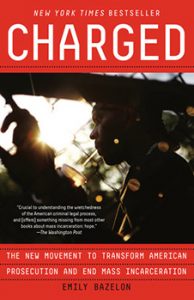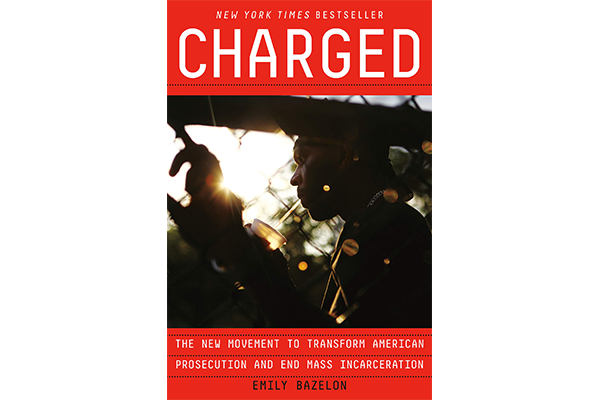As an organization that champions the critical role of literature in bearing witness, we are sensitive to the pandemic’s impact on authors committed to challenging and exposing the carceral state. Temperature Check, Volume 7: The Literary Issue temporarily shapeshifts in format to support those writers with recent releases that contribute to critical public dialogue about mass incarceration, forefronting ideas and concepts that will remain urgent after the pandemic subsides. View the full issue here.

The Feminist Case for Sex Offender’s Rights:
A review of Judith Levine and Erica R. Meiners’s The Feminist and The Sex Offender: Confronting Sexual Harm, Ending State Violence
by Claire Adler
“Public registries and community notification are meant to enhance public safety. They do not. Nor do they help survivors reclaim their well-being. The only thing the registries accomplish is the registrant’s social death. There is no reasonable defense for them. They should be abolished.”
Such is the unequivocal abolitionist stance taken by Judith Levine and Erica R. Meiners in The Feminist and the Sex Offender (Verso). The book is at once wildly ambitious in its commitment to ending the system of mass incarceration, and imminently practical in its suggestions for how to get there. Through an analysis of feminist history, legal precedent, and abolitionist movements, Levine and Meiners meticulously document the failures and profound inequities of the American justice system’s treatment of sex offenders, while making serious proposals for alternate responses to sexual harm.
In many ways, The Feminist and the Sex Offender feels like the culmination of a lifetime of work. Meiners is the author of numerous books on prison abolition and education reform, as well as an educator in her own right. In 2000, she founded an alternative high school for formerly incarcerated adults, where she continues to teach. Levine’s decades of feminist work began in the 1970s, when she founded No More Nice Girls, a pro-sex and pro-abortion street theater group. She is best known for her 2002 book, Harmful to Minors: The Perils of Protecting Children from Sex, which criticizes the American criminalization of the sexuality of children and teens.
The Feminist and the Sex Offender unites these two voices not through assimilation, but by actively highlighting their individual experiences and their symbiotic relationship. Conversational transcripts throughout the book document disagreements between the authors on issues ranging from the necessity of structural analysis, to the role of survivors within transformative justice practices. Along with drawing attention to the complexity of these issues, the conversations point to The Feminist and the Sex Offender’s broader commitment to the building of tricky coalitions. Levine and Meiners draw on their history of work with feminists, modern-day prison abolitionists, and the anti-registry movement to explain why groups that seem to share a common political alignment have failed to collaborate in the past, and how they might go about forming partnerships in the future.
Levine and Meiners strategically focus their energy on the sex offender registry and civil confinement, two especially egregious ways in which the carceral response has served to radically extend the bounds of the prison. At the same time, The Feminist and the Sex Offender proves a refreshingly hopeful and pragmatic guide for building a broader political movement against both prisons and sexual violence. Levine and Meiners speak to the efficacy of transformative justice programs like COSAS, which provides an accountable support system for so-called sexual offenders released from prison as an alternative to the registry. Endorsed both by prison abolitionists and those looking to end sexual abuse, COSAS don’t just preserve the humanity of formerly incarcerated people, but is significantly more effective in preventing recidivism than the registry.
Conversely, the two women rigorously reiterate that a feminism which relies on the state for justice not only denies the humanity of perpetrators of sexual violence, it fails to consistently protect people from harm. It is only through collaboration between feminists and abolitionists that we can begin to “talk about the ways in which institutions and the state hurt people, rather than just what individuals do to other individuals.”
About the reviewer
Claire Adler is an aspiring poet studying English at Barnard College. She is currently quarantining in Salt Lake City, Utah, where she spends her time writing, bread baking, and worrying about climate change. She is a former PEN America Prison Writing intern.











